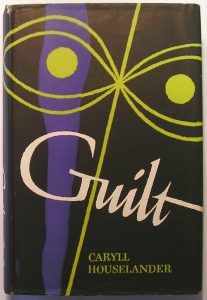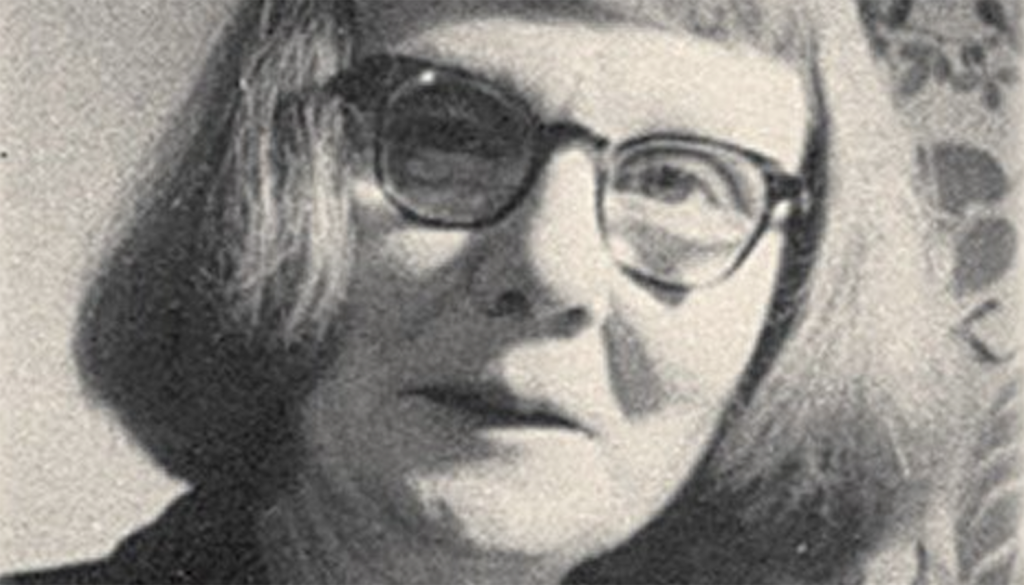Caryll Houselander (1901-1954) was a British mystic and writer who wore a pair of big round tortoiseshell glasses, lived in London during the Blitz, and until she died at 53 from breast cancer, apparently barely slept or ate. A friend observed: “She used to cover her face with some abominable chalky-white substance which gave it quite often the tragic look one associates with clowns and great comedians.”
“Caryll Houselander: That Divine Eccentric,” Maisie Ward’s fine biography, charts Houselander’s difficult childhood, her reversion to the Church in 1925, and her unrequited love for a British spy who would be the model for Ian Fleming’s “James Bond.” She had an eclectic circle of friends and was utterly devoted to Christ. She never married.
Houselander suffered greatly during her own life: from poverty, from frail health, from neuroses. She had a lifelong and especially deep and tender bond with traumatized children, and loved teaching them how to draw, paint, and carve small animals out of wood.
She became a prolific and popular spiritual writer. Her most well-known works include “The Reed of God” (1944), “A Rocking-Horse Catholic” (1955), and “The Risen Christ” (1959).
She wrote another book, lesser-known and especially apropos for Lent: “Guilt” (1951).
“The most striking characteristic of the age in which we are living is psychological suffering,” she begins. “I have named this ego-neurosis. Ego-neurosis is a disease of the soul, a spiritual rather than a psychological ailment.”
Usually such people, Houselander continues, “suffer consciously merely from a vague and persistent unhappiness, an inexplicable sense of guilt about everything they do or don’t do, a shrinking from effort, especially mental effort, a certain sense of frustration and a hidden stirring of shame because they feel inadequate before life — they suffer continually from embarrassment … and always from anxiety in some form or other.”
“That’s ego-neurosis?” was my reaction. I thought everyone felt that way!

All kidding aside, Houselander goes on to discuss the existential guilt arising from our fallen nature, our shared responsibility for the suffering of the world, and the strange phenomenon of people who feel neurotically guilty for trifles while totally overlooking huge sins of commission or omission for which they really should feel guilty: lack of charity, for example, or a tendency toward pathological lying, or murder.
The book contains passages on the mental suffering, among others, of serial killer Peter Kürten (“The Monster of Düsseldorf”), Hans Christian Andersen, the French poet Arthur Rimbaud, and St. Thérèse of Lisieux.
Speaking of guilt, The Times Literary Supplement recently ran a piece by Regina Reni, Canada research chair in philosophy of moral and social cognition at York University in Toronto, called “Libelling the dead?: Anne Frank’s informer and ethics.”
Turns out that researchers purport to have found the man who ratted out the hiding place of Anne Frank and her family to the Nazis. The evidence, though fairly strong, is circumstantial. His name was publicly released.
So Reni poses the question to her ethics class: If the supposed informer — long dead — was innocent, has a moral wrong been done to him?
The students “tend to split into camps who find the other’s view bizarre. Some say it is obvious that your life can be made worse by undiscovered calumnies. Others think it’s just as obvious that what you don’t know can’t hurt you. … It’s an elemental question about the worth of human life: are we ultimately only the sum of our experiences, or do we extend tendrils of value into our unmonitored relationships?”
“[T]he latter view … implies we go on, in some sense, even after death. So long as we are remembered there is still something of us in the world, something our loved ones can honour and tend — not out of duty to the historical record but out of duty to us. Perhaps ‘gone but not forgotten’ means not yet truly gone.”
We Catholics would agree completely. We can still do good on earth when we are “gone.” Harm can still be done to us when we are gone.
And our actions here on Earth follow us into eternity.
In the end, says Houselander, guilt is in the roots of our being, “compelling us to lifelong conflict within ourselves. … Our human nature, inherited from [Adam], is fallen human nature, therefore suffering human nature. … We share with all other human creatures … the obligation to shoulder our share of the burden consequent upon it, and as individual sinners we have an obligation to wrestle unceasingly with ourselves.”
Trying to flee our guilt through false religions, addictions, and various forms of self-punishment avail us nothing.
Is there no way out? Is there no remedy for this crushing, unavoidable burden?
Yes, concludes Houselander: repentance and the sacrament of penance.
“In that stuffy, dark little box we call the confessional, every one of the ceaseless drift of human beings of every kind and description who kneel uncomfortably, listening to the whispered words of absolution, is one with God.”

